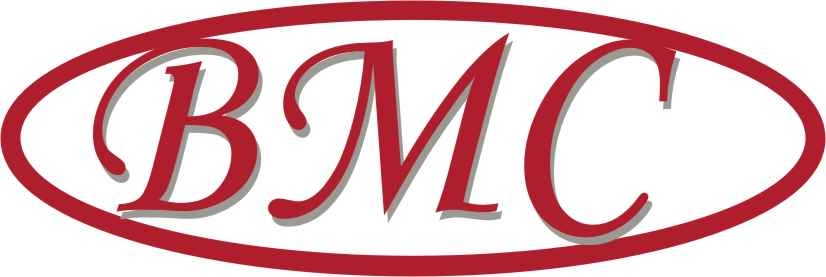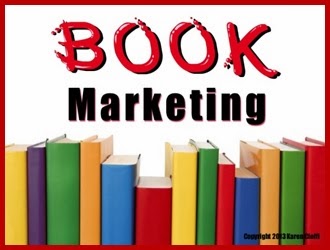Ten Quick Novel and Non-Fiction Promotion Strategies That Work, One That Doesn’t
This blog is based on my forthcoming book:
Write Now! Write, Publish and Sell YOUR BOOK To Attract … New Clients, Well-Paying Expert Witness & Public Speaking Gigs … And Become a Subject Matter News Media Expert
Here are five quick strategies that work for non-fiction authors and novelists, especially those who don’t get a lot of support from their publishers, and one – the first one – that doesn’t work, although logic suggests that it should.
- 1. The one that doesn’t work: Book signings at bookstores don’t really work for you – unless you’re Sean Hannity or Bill O’Reilly or Stephen King, book signings can feel good, but they don’t really move a lot of books. Part of this is because bookstores seldom generate any publicity. Getting publicity is something else – and while a book signing can be a hook (“I’ll be in town and would like to do a quick radio interview”), it’s not a strong hook. Stil, if you can promote a signing, you can turn things around. I have a client (shout-out, Alexa Glazer) who had a book signing. Three hundred people showed up and she sold around 175 books – that’s a quick three or four grand for her, plus lots of positive word-of-mouth. But Lex is a hustler who never takes no for an answer. Follow her lead, or spare yourself the agony of having a book signing for six people.
- 2. A way to make Signings work: Book signings at special events that seem tied to the book theme do a much better job of moving books, but they’re harder to find. However, given the sales potential, they’re worth the effort. This includes conventions and other gatherings topically tied to your book. If you wrote a history of Superman, hold a signing at Comic-Con.
- 3. Another way to make Signings work: Book signings at talks that you give seem to move books much better as well – the trick is getting topical speaking gigs. You have to promote these separately from the book, which may distract you from promoting your book, but the sales potential may make this a reasonable trade-off. Some venues will buy your books in volume, see #4 for details.
- 4. Volume group sales are more profitable than individual sales, even when the sales are discounted. However, the trick is to find groups that tie into the theme or setting of the book, and persuade them to buy your book in quantity to give or re-sell to members. Now here’s a tip you won’t find anywhere else. Tell the group buying the books in bulk, to support your speaking gig, or just to raise money, that you’ll put their name on the cover (on a corner flag). This will send them over the moon, which is great … but also, they can’t return unsold copies, because their name is on the cover. Double-down on this by autographing them, too. With POD it’s easy to flag a book cover, and pays dividends. One more thought. Some groups may be induced to have you come speak if you say you’ll “come for free – expenses only” if they buy enough books for everyone you’ll speak to. Then you autograph them one-on-one and you’ll have fans and sales.
- 5. Networking: “Working” your alumni association, church, civic and fraternal organizations is another way to build brand equity (name recognition) and sell books. A surprising number of people will buy your books if they believe you’re “like them.” This same process can go online with:
- 6. Social Networking: Online social media is no longer emerging as an effective promotion tool for writers – it is now the leading promotional strategy. Key networking tools include email lists (your platform) and phone lists (for real Web 3.0 impact, nothing beats a short-and-sweet text message to someone who’s agreed to receive it). Build your platform and – as noted in #7, build your virtual network, too.
- Networking sites include FaceBook, which is basically the largest network on the planet, with something like one-third of every living man, woman and child signed on. Facebook is where to be, big-time. Linkedin and Pinterest and Instagram and a few other networking sites are growing in popularity and potential. Twitter continues to get all the buzz, perhaps because it’s our current President’s favorite method of putting his foot in his mouth (or using it to stomp someone he thinks needs a good ass-whooping). I recommend using only three Social Media sites. I use Facebook, LinkedIn and Twitter (though in fact, I don’t “use” LinkedIn much -my wife is the family expert on that network). IMPORTANT: The huge growth of Facebook Groups makes that virtually another networking venue altogether. I use those sites to create a virtual platform of people I can meet and reach when the time is right.
- The keys to Social Media marketing are “make friends” and “network.” Use your position on those platforms to get the word out to your “friends.” Once they feel they know you, ask them to spread the word. If you’re lucky and good (Napoleon said it’s better to be lucky than good, but being both is better still), “viral” will take off and you’ll find people you’ve never heard of wanting to be your friend (on the network) and buying your books and spreading the word.
- Social Networking lets strangers feel like you’re an author who’s also a friend, someone they can brag on, an excellent sales motivator. For more on this, the free e-book “The New Rules of PR (for online PR) is several years old but still useful: http://www.masconsulting-online.com/Channel_news/New-Rules-of-PR.pdf
- The author of that book has a much expanded book for sale on Amazon – his name is David Meerman Scott. It’s now in it’s fifth edition, and each one has been a NYT Business Bestseller. I’ve bought all five and read them with a highlighter pen in hand – this book is the real deal if you want to get serious about PR. If not, retain a PR pro (I’m one, but there are many who focus on book and author promotion) to do it for you.
- Create your own Social Network by setting up websites, emailed newsletters, Facebook and Twitter pages that link in buyers of your previous books. This can create a demand for a new book. Prolific, best-selling author Lawrence Block has done this effectively, as has the equally-prolific and successful Janet Evanovich. Think of your author website and e-newsletter as the core elements of your own private Social Network.
These strategies work, but (yes, this is a cliche, but it’s still real) only if you work these strategies.


Recent Comments